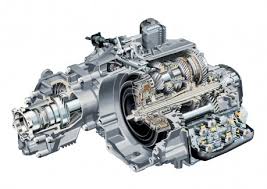Mobile:+86-311-808-126-83
Email:info@ydcastings.com
Exploring the Latest Innovations and Trends in End Cap Design and Functionality for Retail Spaces
The Importance of End Caps in Retail Marketing A Strategic Overview
End caps play a crucial role in retail marketing, serving as valuable real estate within stores that can significantly influence customer behavior and sales. Located at the ends of aisles, these displays draw the eye of shoppers as they navigate through various sections of a store. Understanding the strategic use of end caps can help retailers maximize their sales potential and enhance the shopping experience.
The Importance of End Caps in Retail Marketing A Strategic Overview
Moreover, end caps serve as an effective way to introduce new products to shoppers. Retailers can leverage this prime positioning to encourage customers to try something different or new, helping to break the monotony of their usual shopping habits. Placing innovative or trending products on an end cap can stimulate interest and curiosity, leading shoppers to make impulse purchases they may not have considered otherwise.
end cap 2

There’s also a psychological aspect to the use of end caps in stores. Research shows that consumers are more likely to engage with products that are presented in an attractive and organized manner. Well-designed end caps that use appealing colors, signage, and arrangements can create a compelling narrative around the products, enticing shoppers to investigate further. Effective merchandising techniques, including the use of complimentary products on the same end cap, can enhance this effect, encouraging customers to buy more than they originally intended.
Additionally, end caps can serve to highlight promotions and discounts, a tactic that can be very persuasive for cost-conscious consumers. During sales events, strategically placed end caps featuring discounted items can create urgency and lead to increased foot traffic. Shoppers who see a sign that proclaims “limited time offer” next to a popular item are more likely to make a quick decision, capitalizing on the fear of missing out (FOMO) on a good bargain.
Furthermore, collaboration with suppliers can enhance the effectiveness of end cap displays. Retailers can work with brands to create co-branded end caps that not only highlight the product but also ensure that the layout aligns with both the retailer’s and the brand’s marketing strategies. This partnership can lead to unique merchandising solutions that attract shopper attention more effectively than standard displays.
In conclusion, end caps are a powerful tool in the toolkit of retail marketing. Their strategic placement at the ends of aisles ensures high visibility and offers an opportunity for retailers to influence shopper behavior effectively. By understanding the psychological triggers of consumers and incorporating appealing designs, promotions, and strategic partnerships, retailers can leverage end caps to enhance sales performance and improve the overall shopping experience. As the retail landscape continues to evolve, the strategic use of end caps remains a foundational element for driving consumer engagement and loyalty.
-
Why Should You Invest in Superior Pump Castings for Your Equipment?NewsJun.09,2025
-
Unlock Performance Potential with Stainless Impellers and Aluminum End CapsNewsJun.09,2025
-
Revolutionize Your Machinery with Superior Cast Iron and Aluminum ComponentsNewsJun.09,2025
-
Revolutionize Fluid Dynamics with Premium Pump ComponentsNewsJun.09,2025
-
Optimizing Industrial Systems with Essential Valve ComponentsNewsJun.09,2025
-
Elevate Grid Efficiency with High-Precision Power CastingsNewsJun.09,2025











